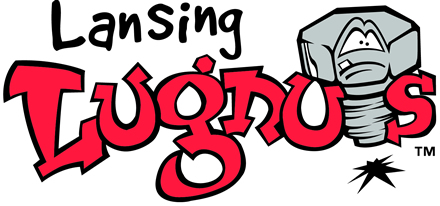 When you’re the Chicago Cubs or the New York Yankees, you’ve got it all going – iconic brands, millions of loyalists in the home market and around the country, and a reservoir of seemingly unlimited dollars that can deployed to put the best players on the field. And Major League Baseball continues to find creative and innovative ways to market the game, its teams, and its players.
When you’re the Chicago Cubs or the New York Yankees, you’ve got it all going – iconic brands, millions of loyalists in the home market and around the country, and a reservoir of seemingly unlimited dollars that can deployed to put the best players on the field. And Major League Baseball continues to find creative and innovative ways to market the game, its teams, and its players.
But when you’re a minor league team, it’s an entirely different story. The markets are smaller – a lot smaller – the money is tight, and the on-field experience is well…inconsistent. Most teams are feeders for their MLB partners, so the players tend to either be young and on the way up, or troubled and on the way down. From game to game, from week to week, you never know who’s going to be on the diamond.
That’s one of the reasons why these small market teams have been forced to become marketing wizards. The action on the field may not always be the best, so games have to provide family experiences that motivate attendance, as well as merch sales.
In markets where the economy has been especially shaky, the task is even more arduous. In the Michigan area where I live, minor league teams have had to scrape  and scrap a little harder because of an economy that has been troublesome for years. And building team identities and brands is even more challenging.
and scrap a little harder because of an economy that has been troublesome for years. And building team identities and brands is even more challenging.
My favorite team name, by the way, is the Lansing Lugnuts. For tonight’s game against the Burlington Bees, they’ve got a LOT going on. There’s a fireworks show after the game, it’s Grand Slam School Night, kids eat free, and Mad Chad – described as “a chainsaw-juggling Evel Knievel of the comedy” – will be performing.
And oh by the way, there’s a baseball game scheduled, too.
But the best example of extreme minor league baseball innovation recently came from one of my least favorite team names, the Toledo Mud Hens. These guys are just down the road from Detroit, which is good, because they feed the parent club, the Detroit Tigers. Players come and go, driving up and down I-75 to either join the big club or spend some time figuring out what’s wrong in Toledo.
Now while animal team names often conjure up images of strength, fear, or dominance – think Lions, Tigers, Bears, Grizzlies – a mud hen (pictured above) is actually a migratory bird that isn’t even hunted because its meat is apparently not very tasty.
So when you play in the shadow of the major league club and your team name isn’t especially appealing, you’d better bring a little magic to the game in the form of marketing and promotion. And so this week, you just had to be impressed with the ingenuity behind the Mud Hens’ newest promotion. On “Beatles Night” on June 16, the players will be wearing Sgt. Pepper’s Lonely Hearts Club Band themed uniforms.
FIRST LOOK: Let us introduce to you our fab Sgt. Pepper’s-themed jerseys we’ll wear for ‘Beatles Night’ on June 16. pic.twitter.com/oiIjKUPLYg
— Toledo Mud Hens (@MudHens) May 2, 2017
Next thing you know, the Mud Hens double play combination will be Lennon to McCartney to Harrison. With Starr as the DH.
But joking aside, this is how a small market brand – baseball or radio station can jump on a popularity bandwagon and pull it off. While baseball – like radio – is seeking younger demographics, this idea obviously made the cut, in spite of promoting a band and an album that are 50 years old.
Tying into the zeitgeist of the moment is how you make news and make noise. When I Googled “Toledo Mud Hens Beatles,” it delivered more than 46,000 results – a clear sign their clever promotion went viral.
And that’s the beauty of thinking big in a small market – whether it’s a minor league baseball team or a radio station or personality show. It is always possible to innovate your way via the Internet, thanks to social media and our insatiable need for the next “breaking news story.”
Anyone can go all-Beatles or to track the “Sgt. Pepper’s Album” on the 50th anniversary of its release. Digging deeper to come up with that promotion or marketing coup that eats the Internet for a couple of day is what every station should be striving to achieve, whether in New York City or Toledo, Ohio.
So now you have something to talk about in your next promotions meeting.
Yeah, yeah, yeah.
- Media And Technology In 2025: Believe It Or Not! - April 18, 2025
- In Radio, You Just Never Know - April 17, 2025
- The Secret To Making A Great Podcast (And Great Radio) - April 16, 2025




Hearing the Classics on The Corner of Fresh & Familiar. http://www.broadcastideas.com
Thanks, Clark.
Great article. I began in radio in 1990 and found my creative skills fell in line with the promotions/marketing aspect of the medium. While serving as promotions director of alternative rock station, Dayton welcomed a new professional minor league baseball team in 2000. Through a few fortunate and weird turns, I was hired as the Director of Entertainment for the Dayton Dragons. I quickly found so much of what I did in radio promotions was easily transferred to producing a live baseball show. Everything from incorporating emcees and professional quality entertainment, to sound effects, great music, silly stunts, mascot skits, and video, were a natural transition from radio to live events.
I only spent one season at the helm. Minor league, much like radio, can have some precarious hours. I’d go the stadium at 9am like the rest of the employees and on game day, wouldn’t come up some nights until 10:30 or 11pm. Of course, when the team was traveling you were still doing show prep, writing new skits, building props, and recharging the hot dog launcher. There was always something to do.
Also much like radio, minor league baseball isn’t known for its great pay. Like most entertainment jobs, people are so eager to get the gig, the owners and managers don’t really need to “show the money.” I love baseball so there was an opportunity I couldn’t pass up. I returned to radio for a few years then moved into the television. Now, I’m a creative director in advertising, and run my own online radio station on the side. And I still use all of those skills I first learned and honed in radio.
Todd, this is a great story. Sounds like a great experience, both in baseball and radio. Glad to hear that “training” has paid off for you. Appreciate you taking the time to comment.
Hey Fred,
Another example is Mike Veeck…Met him a couple of times while in Charleston, SC. The team is all about entertainment…Fun is Good…and some about baseball. Check him out…https://funisgoodteam.com/
He’s got a book by the same name and you might recognize the last name for a rather “infamous” radio baseball intersection…Disco Demolition.
Doc
The apple doesn’t fall from the tree. Veeck’s father was Bill Veeck, the guy who batted a midget in a game back in the early 50s (“Veeck As In Wreck”). There is obviously a tight connection between what moves the needle both on the diamond and over the air. Thanks, Mike.